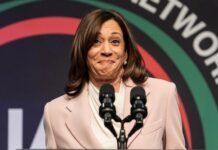
In an era where American families are already tightening their belts, the recent announcement that Dollar Tree will be raising its prices by up to 7% is more than just a sign of the times; it's a stark warning of the direction in which our economy is headed. For decades, Dollar Tree has been the epitome of affordable retail, a place where consumers could count on stable prices amidst fluctuating economic conditions. This shift, therefore, is not just about a few cents increase; it's emblematic of the larger economic pressures at play.
At the heart of this unfortunate development is the relentless tide of inflation, eroding the purchasing power of the American dollar. While fiscal irresponsibility and unchecked government spending continue to fan these flames, everyday citizens are the ones left bearing the brunt.
STORE CLOSINGS
All 99 Cents Only — 300+ stores across the nation — are closing for good.
Dollar Tree is closing nearly 1,000 Family Dollar stores, citing theft & inflation.
Economists say this trend of bargain store closures is troubling.
This is Joe Biden’s economy.
— #ThePersistence (@ScottPresler) April 6, 2024
The price adjustment at Dollar Tree is a direct response to these macroeconomic forces, which have been particularly exacerbated by policies that prioritize short-term political gains over long-term economic stability.
The implications of this price increase extend far beyond the aisles of Dollar Tree. It signals an alarming trend where even the most budget-friendly retailers are no longer shielded from the economic mismanagement that plagues our nation. This erosion of affordability is a wake-up call, indicating that the very foundation of our economy is under threat. As prices soar, the value of hard-earned money diminishes, leaving families to question the stability of their financial future.
POV: You're shopping at Dollar Tree in 2024
— Wall Street Silver (@WallStreetSilv) April 13, 2024
Critics of the government's fiscal policies have long warned about the inevitable consequences of excessive spending and debt accumulation. As businesses, large and small, grapple with the ripple effects of inflation, the decision by Dollar Tree to raise its prices is a poignant reminder of these warnings. It reflects a broader economic vulnerability, where operational costs escalate, forcing businesses to make tough choices that ultimately impact consumers.
It's essential to understand that the ramifications of this price hike are not uniform. The burden falls disproportionately on the economically disadvantaged, who rely on stores like Dollar Tree for essential goods. This price increase is not merely an economic issue; it's a matter of social justice, highlighting the widening gap between the wealthy and the poor. In a nation that prides itself on the principle of equal opportunity, such disparities erode the fabric of our social contract.
The conservative critique of current economic strategies is not simply oppositional; it's grounded in a vision of fiscal conservatism and responsibility. The solution lies not in naively rolling back prices or implementing price controls, but in addressing the root causes of inflation. This involves curbing government spending, encouraging fiscal responsibility, and fostering an economic environment where businesses can thrive without resorting to raising prices.
As we navigate these challenging times, the narrative of Dollar Tree's price hike should serve as a catalyst for broader discussions on economic policy. It's an opportunity to reassess our priorities, focusing on sustainable growth, economic stability, and the well-being of all Americans. The path to recovery is paved with fiscal discipline, strategic policymaking, and a commitment to the principles of free-market capitalism.
In conclusion, while the price adjustments at Dollar Tree may seem minor in isolation, they're indicative of a troubling economic trajectory. As conservatives, our focus must be on advocating for policies that ensure long-term stability, prosperity, and fairness. By embracing these principles, we can work towards an economy that doesn't just survive but thrives—where businesses can maintain affordable prices, and all Americans can enjoy the fruits of their labor without fear of inflationary pressures.













“Your posts are like a lighthouse, guiding us through the dark waters of doubt. Thank you for being a beacon of motivation!”
I’ve read this on another site. I also read that all stores will be closed. What exactly is the real story??🤔